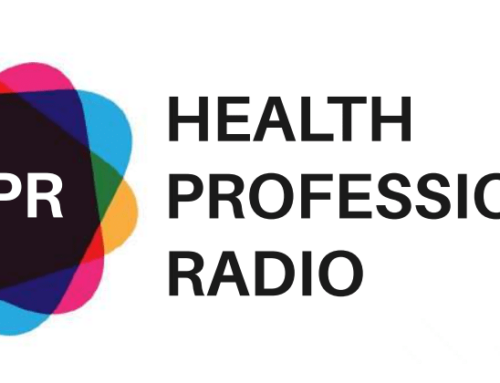There is a lot of conversation about the stress that emergency responders are subject to and how it impacts their lives and mental wellbeing. It should be talked about!
Cops, firefighters, EMTs and paramedics see things, almost every day, that civilians can’t possibly imagine. 9-1-1 dispatchers interact with callers and hear things that civilians and other first responders don’t. It’s similar to what our military personnel go through, although arguably different.
Post-Traumatic Stress Disorder (PTSD), Post-Traumatic Stress Injury (PTSI), or Post-Traumatic Stress Syndrome (PTSS), regardless of the acronym you use, the symptoms and the life impacts are real, and they need to be addressed if we want healthy, fully functional responders to keep answering the call.
The name changes are the result of additional research and the fact that Post-Traumatic Stress is not a disorder but rather a collection of signs and symptoms representative of an injury.
By de-stigmatizing the name, the hope is that more responders, and veterans, will seek and accept treatment and begin the work of taking back control of a full and healthy life.
In my opinion, there is a group that has been overlooked. Healthcare and emergency service leaders find themselves not only on the front lines handling patients, but also have the added stress that comes with running their organizations.
Field providers are subjected to the issues associated with incident-based stress reactions, and over a career have cumulative and compounding stressors, while leaders in most organizations do not get an ‘end of shift’ break and therefore suffer the effects of cumulative stress to a greater degree.
I know very few emergency service leaders who can fully unplug from their organization even on their ‘day off’. The cell is always within reach, questions arise that only they can answer, and large-scale incidents happen that require a return to duty. These demands, as well as each person’s individual leadership style, conspire to keep stress high which ultimately leads to health issues.
It is the rare, think unicorn rare here, to find an emergency service leader that does not suffer from emotional stress, relationship issues, weight, blood pressure or sleep problems and/or some additional form of unhealthy addictive behavior.
Just as we are having trouble recruiting field staff into our organizations, finding and cultivating strong, effective leaders is actually tougher. Field staff complete their shifts and leave, not overly concerned about the workplace until their next duty shift.
We look to our field staff for the next promotions to FTO, shift commanders or higher and they are looking back at us, seeing a 24/7 ‘always on’ commitment, and saying “no thanks”.
The current cycle of hire, train, burnout and replace both field staff and leadership has to change.
To accomplish this, I believe there are two things that need to addressed. First, we have to modify organizational expectations to both encourage, and allow for a shift in both individual mindset and leadership team member lifestyle. Secondly, we individually need to evaluate our personal expectations. Neither is easy.
Organizational expectations
Just because the calls keep coming 24/7, being always available is neither a healthy way to live nor a viable expectation of our leaders. Ingraining the expectation that if you are a member of the leadership team you are expected (stated or implied) to make yourself perpetually available is shortsighted and impedes both recruitment and retention of good people.
We should be structuring the leadership team schedule to allow each member to have completely unplugged time off. Invest in separate phone for the duty officer which allows personal phones to be turned off. If something critical happens, MCI, serious staff member injury, (or FBI van parked out front), the duty officer can notify the rest of the leadership group.
Develop a mandatory time off policy. Some people plan to accrue time off for a major life event (long vacation, post-surgical recovery, parenthood, etc.) but if you have a leader who is not taking time off, intervene, discuss why and require compliance with the policy unless there is a compelling reason.
Personal expectations
The harder part of this issue is found in our mirrors. We in leadership have been trained to accept 24/7 as the way of life. STOP! We are all important to our organizations, but if you can’t take a day, weekend, or week off without someone needing you, your organizational depth and resilience sucks.
Every leader’s job is to train their replacement, not be irreplaceable. If you get hit by a bus tomorrow, the organization should still be able to function.
Giving yourself permission to step back, decompress and recharge is critical to career longevity. Develop hobbies or interests that are completely outside of emergency services.
If you can’t figure out what inspires you away from work, ask yourself these questions: (take time to actually write out your answers)
- If I couldn’t be involved in emergency services any longer, what would I love to do instead?
- What would I do if I won millions in the lottery?
- If a family member received a life altering medical diagnosis and I had to be there for them, what would I change immediately? (why wait for the call?)
In my coaching practice, the answers to these and a couple of other questions usually uncover a passionate interest that can be developed to help manage stress, create mindset clarity and build something for the future as a post-retirement ‘thing to do’.
Don’t wait, start now. It’s your life.
You can have a career in emergency services and a life too!
If you need some help with this personally or developing the changes within your organization, let’s talk about it.
Schedule a complimentary 30-minute call with me @ https://app.acuityscheduling.com/schedule.php?owner=19413490





